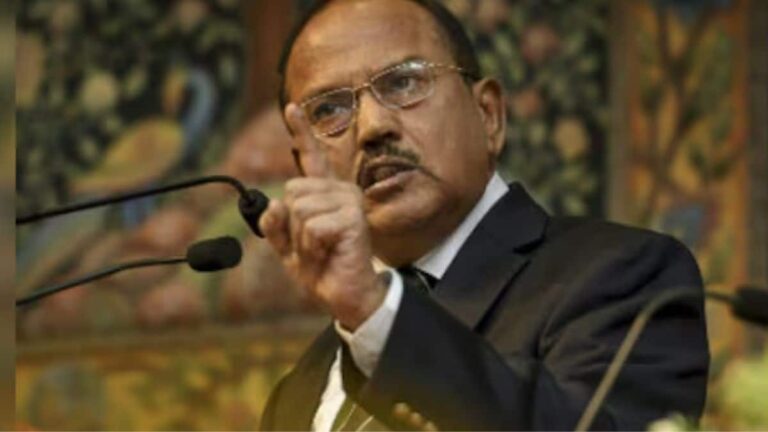Myanmar and India share a 1,643-km-long border that passes through the states of Mizoram, Manipur, Nagaland and Arunachal Pradesh.
Myanmar Prime Minister Min Aung Hlaing met with National Security Advisor Ajit Doval and discussed measures to build peace and stability in the border areas.
Doval was in Myanmar to lead the Indian delegation to attend the fourth annual meeting of security chiefs of the Bay of Bengal Initiative for Multisectoral Technical and Economic Cooperation (BIMSTEC).
State Administrative Council Chairman Aung Hlaing received Doval at his office on Friday.
according to Myanmar’s new global lightDuring the meeting, Deputy Prime Minister and Foreign Minister Joko Bin Min, head of the Myanmar state-run News Agency, and others exchanged views in a friendly manner on the friendly relations and cooperation between the two countries, Myanmar’s political developments, preparations for holding free and fair democratic general elections with a multi-party system, and measures toward peace and stability in the border regions.
Myanmar is striving to establish peace and stability in the Indian border areas, the paper said.
The two countries share a 1,643-km-long border passing through the states of Mizoram, Manipur, Nagaland and Arunachal Pradesh.
Earlier this month, External Affairs Minister S Jaishankar hosted foreign ministers of member states of the Bay of Bengal Initiative – BIMSTEC group – in the national capital to strengthen cooperation among the Bay of Bengal countries.
BIMSTEC is a regional organisation linking countries around the Bay of Bengal to promote economic growth, trade and cooperation in areas such as transport, energy and counter-terrorism.
It aims to strengthen ties and promote economic development among member countries, which include Bangladesh, Bhutan, India, Myanmar, Nepal, Sri Lanka and Thailand.
As a spearhead of regional cooperation, BIMSTEC aims to achieve rapid economic development and social progress through joint initiatives among its member states. Founded on the principles of equality and partnership, BIMSTEC aims to address common challenges and leverage shared opportunities across seven strategic sectors.
Each member state leads in a particular area, reflecting its respective expertise and commitment to joint development. Bangladesh is leveraging its strategic location and marine resources to lead in trade, investment and development, including the blue economy. Sri Lanka is focusing on science, technology and innovation, including health and human resource development, to foster research and human capital advancements.
Bhutan is leading the charge on environment and climate change, including mountain economy, and emphasizing sustainable practices in the face of ecological challenges, while India is responsible for security, including energy and disaster management, and is providing expertise in disaster preparedness and strategic energy management.
Myanmar oversees agriculture and food security, including fisheries and livestock farming, and supports food sustainability and rural development, while Nepal promotes people-to-people exchanges, including poverty alleviation, promoting cultural exchanges and poverty reduction initiatives.
Thailand is leading connectivity efforts, strengthening regional infrastructure and transport networks to facilitate seamless connectivity among member states, and BIMSTEC values collaboration with international and regional organisations to align its objectives with the global development agenda to maximise impact.
BIMSTEC focuses on mutual assistance, joint projects and capacity building, aiming to translate joint efforts into tangible benefits to improve living standards and promote inclusive growth across the Bay of Bengal region.
With input from the agency.
Find us on YouTube
subscribe

